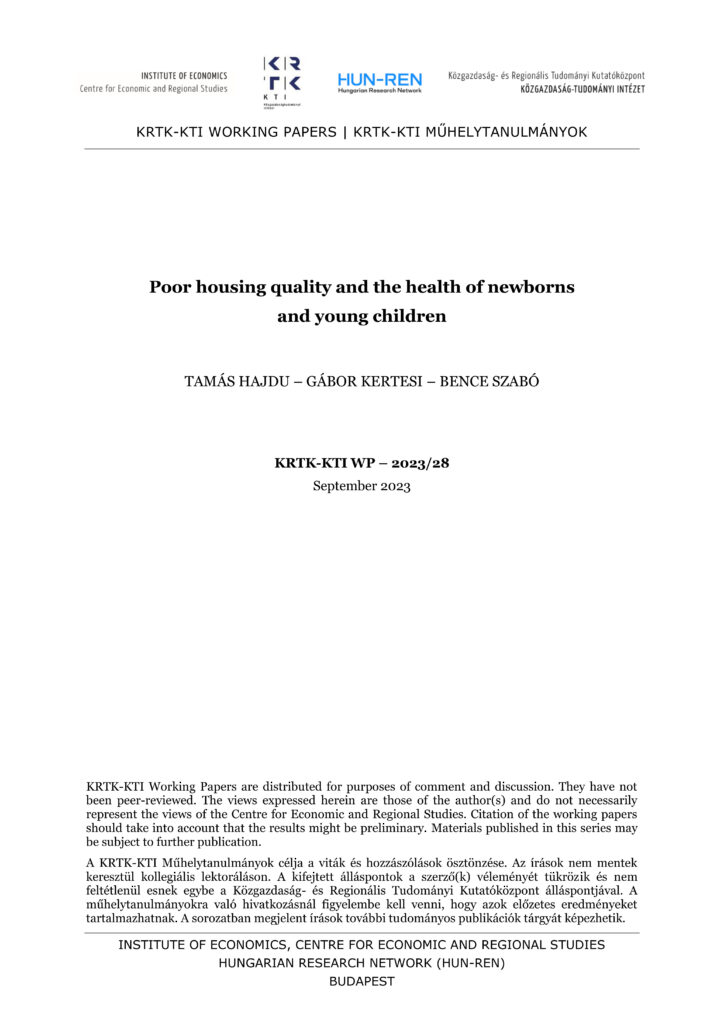This study uses linked administrative data on live births, hospital stays, and census records for children born in Hungary between 2006 and 2011 to examine the relationship between poor housing quality and the health of newborns and children aged 1-2 years. We show that poor housing quality, defined as lack of access to basic sanitation and exposure to polluting heating, is not a negligible problem even in a high-income EU country like Hungary. This is particularly the case for disadvantaged children, 20-25% of whom live in extremely poor-quality homes. Next, we provide evidence that poor housing quality is strongly associated with lower health at birth and a higher number of days spent in inpatient care at the age of 1-2 years. These results indicate that lack of access to basic sanitation, hygiene, and non-polluting heating and their health impacts cannot be considered as the exclusive problem for low- and middle-income countries. In high-income countries, there is also a need for public policy programs that identify those affected by poor housing quality and offer them potential solutions to reduce the adverse effects on their health.
Publikációk / Poor housing quality and the health of newborns and young children
2025
Szep
04
H
K
Sz
Cs
P
Sz
V
1
2
3
4
5
6
7
8
9
10
11
12
13
14
15
16
17
18
19
20
21
22
23
24
25
26
27
28
29
30
1
2
3
4
5
Következő hónap >
a
2025
Szep
04
H
K
Sz
Cs
P
Sz
V
1
2
3
4
5
6
7
8
9
10
11
12
13
14
15
16
17
18
19
20
21
22
23
24
25
26
27
28
29
30
1
2
3
4
5
Következő hónap >



